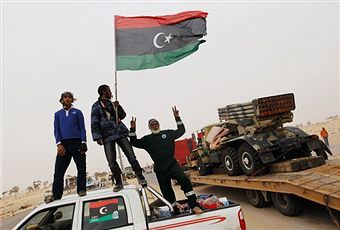 Author Alison Pargeter picks up the debate about Libya and al Qaeda in this morning’s
Times (£), dismissing the idea that a new “jihadist hotspot” is being created.
Author Alison Pargeter picks up the debate about Libya and al Qaeda in this morning’s
Times (£), dismissing the idea that a new “jihadist hotspot” is being created.
As I wrote some time ago, it is difficult even for people who have travelled in eastern Libya to know anything for sure. I hear from sources in Benghazi that the Islamists number among some of the better troops – having had training and experience in fighting. They offer what one person called “small unit cohesion”, in contrast to poorly-organised rebel force. But they do not seem to run or even hold sway over the movement.
The bigger question in Libya right now, however, seems to be this: who can survive a stalemate – Colonel Ghaddafi or the rebels? Both face serious problems. The dictator has to overcome the maritime blockade, replenish his troops and ensure people don’t rise up against him. With so many sub-Saharan African workers having fled Libya, many Libyans are having to take on tasks they never had to do before – or see large parts of the rump country come to an economic standstill. With little control of the oil industry, problems are piling up.
But the rebels have problems too. They have to develop a capable military that can defeat the loyalists and run Benghazi and other liberated cities, which are normally dependent on state jobs that no longer exist. Many people have not been paid since the fighting began. So the rebels face economic problems, including rising food prices. Whether they are capable of addressing these problems is unclear. People who have visited Benghazi (as opposed to more eastern towns) worry about the rebels’ ability to govern.
This means that short-term support for the stabilization of eastern Libya is as important as arming the rebels.






Comments